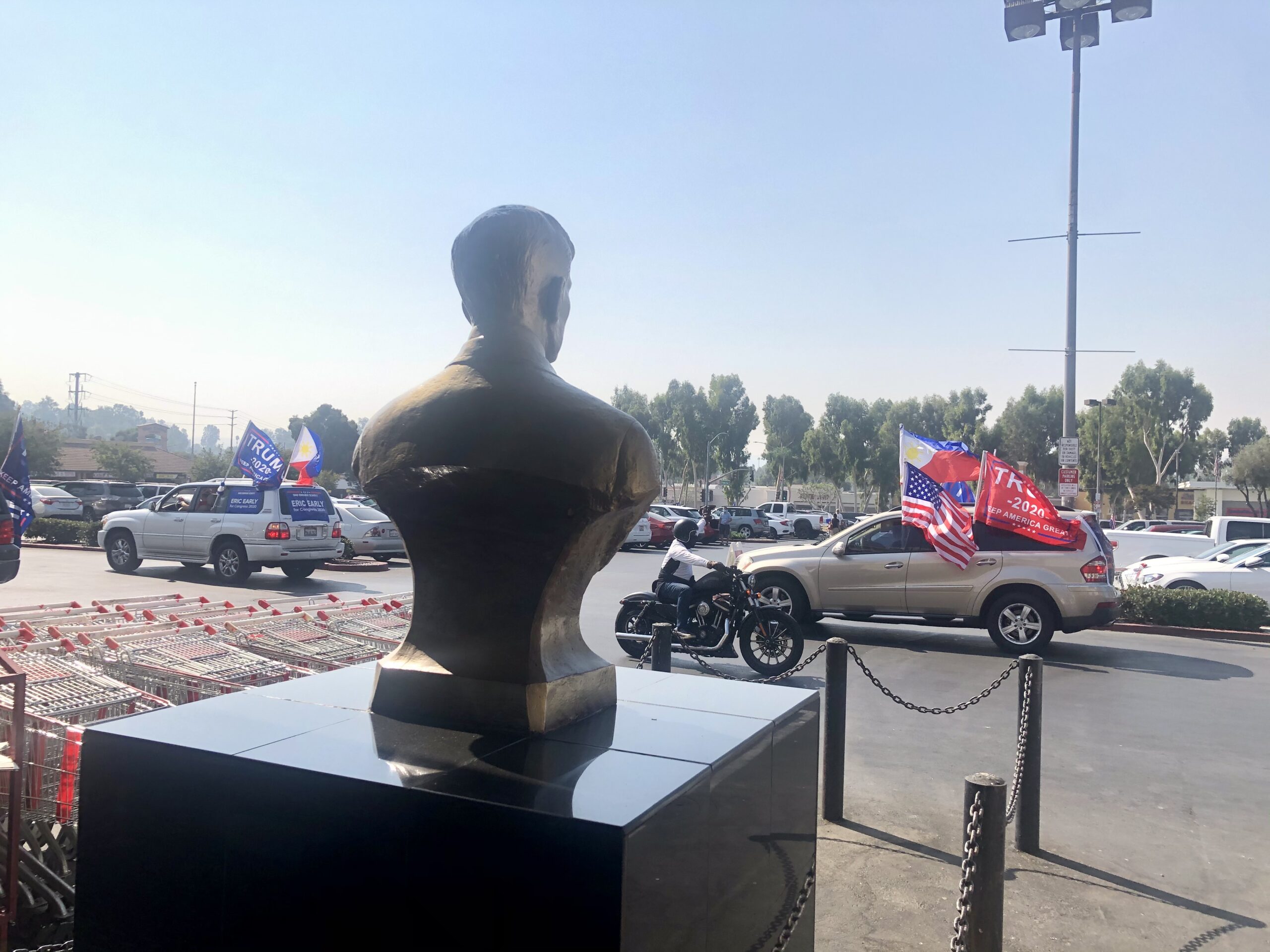by Daniel Ynchausti
After attending the ‘Pinoys for Trump’ Rally in Walnut, California last week, it is clear that many Filipino Americans who do support President Trump this upcoming election have trouble reading between the lines when faced with ethical reasoning in comparison to their own religious values and virtues.
When asked about how President Trump has helped Filipino or Asian Americans, some pointed to how they feel that Trump is hard working similar to Filipinos, while another went on an unfounded tirade about how underrepresented Asians are in Hollywood and that Trump is a representation of sanity in an insane world.
Still, most of the attendees that were interviewed had a common theme of biblicality and Christian values when asked the same question—many providing it as a reason for why other Filipinos should vote for Trump as well.
One attendee stated, “[Since] most Filipinos are Christians and Catholics, they are supposed to understand the platform of Trump is more leaning towards the biblical side.”
When asked to expand on the ways Trump leans towards the biblical side, attendees said the issues included abortion, gay marriage, and welfare. However, the scripture’s verbiage on such matters fails to solidify within their interpretations.

Filipinos supporting Trump this election show the same images of identity politics not unique to the group that has been pushing the Trump campaign on: religious-based voting.
Many arguments reiterated at the rally included that abortion is akin to murder, marriage is solely between a man and a woman as instituted by Adam and Eve, and that the bible explicitly says to “help the poor” and not the lazy. All being attacks on abortion rights, gay rights, and social programs.
The problem here doesn’t stem from typical religious centered voters who vote strictly on these issues, but from the interpretation of such gospels and the ambivalence between voters when faced with questions on biblical teachings in conjunction with President Trump’s own character.
One attendee I talked to, a college student who is currently undecided, emphasized the importance of her religious beliefs in regards to voting, but also recognized that a true Christian is to live like Christ. She stated that “As Christians, we are called to live like Jesus, and Jesus was a kind and loving person, especially to those in need. Trump is not as kind.” Sadly, this is a condition that most religious Trump voters often lack when deciding to vote for him.
The duality between the virtues they seek to live out, and basic moral reasoning begins here.
Trump, to summarize it briefly, is the complete opposite of what it means to be Christian, as described by his own followers. He is the false idol they swear never to praise. This narcissistic, racist, misogynistic, dishonest, childish, disgraceful, hating, homophobic, materialistic, gluttonous, anti-Semitic, playboy has made himself their representation of Christ.
A man who is clearly antithetical to any Christian church teaching and has arguably broken every one of the ten commandments (taking into account the over 200,000 dead Americans and the disproportionate number of Filipino nurses who have died from the COVID-19 pandemic) has somehow captured the minds of church-going Filipinos.
President Trump’s platform has redefined what being “Christ-like” is to his own image, making his religious voters experience cognitive dissonance, second-guessing their own beliefs to conform around him.
This failure to use cognitive skills and basic reasoning, even in a religious sense, has led to the spread of misinformation and abuse towards religious voters from the Trump campaign.
Looking at the frequent bones of contention such as abortion, same-sex marriage, and welfare, we can find that all arguments against it can be dispelled through Constitutional safeguards and scripture itself.
To rally against abortion and same-sex marriage is to ignore both the Constitution’s separation of church and state and the 1st Amendment’s guarantee to freely express religion by using religious perspectives while making policies and infringing on other religion’s stances on the issue.
To proclaim that welfare and social programs mainly help the lazy over those who are considered “actually poor” ignores plain scripture and who Jesus Christ was for.
The argument that the bible only states to “help the poor” and does not say help the lazy is unsubstantiated by the book’s full verse. It reads, “Since there will never cease to be some in need on the earth, I, therefore command you, ‘Open your hand to the poor and needy neighbor in your land’” (Deuteronomy 15:11).
I am no theologian or pastor, but to understand and correctly interpret basic scripture text such as this, one must recognize who and what Christ stood for. For justice, for the righteous, the poor, the needy, the sick, the outcast, and the underprivileged.
To reject the government’s idea to help the needy, disadvantaged, historically marginalized, and push this narrative that they are not working “hard enough” and are lazy, reeks of one’s own privilege.
And to stand in opposition and disbelief that these “lazy” people do not need and must be taken off of these resources, welfare, and other social programs is both immoral and profoundly unchristian.
Sadly, the misleading Trump train has taken head-on the religious voters of every community, including our own. No ounce of reason, virtue, or judgment could ever suffice to turn them away from the lies they feel pressured to believe, no matter how hypocritical and dissonant it is—making this November 3rd evermore vital to their faith.
* * *
Daniel Ynchausti is a student currently studying political science and journalism at California State University, Fullerton. His topics of interest include U.S. politics, international affairs, and Fil-Am issues and concerns.




